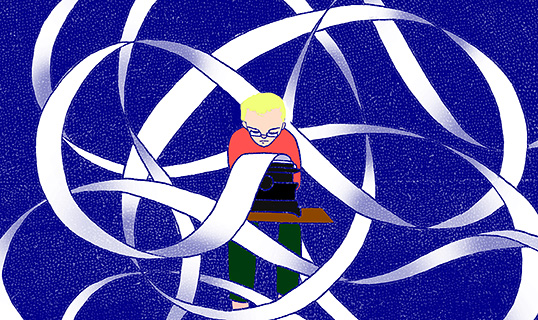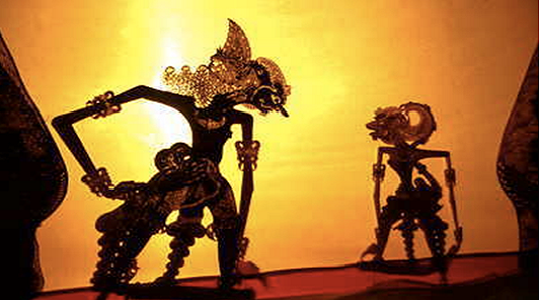Juxtapositions are rife in Intan Paramaditha’s enchanting story, “Visiting a Haunted House,” translated from the Indonesian by Stephen Epstein. To me it read almost like an incantation, the words constantly looping memory upon the story’s present. As a granddaughter visits her dead grandmother’s house, she paints a pointillist picture of her grandmother’s life, whose colors soon run into her own. A broken red lipstick, a cloudy mirror, vanished smells of Gudang Garam cigarettes—the world spins, and so do familial memories, ancestral souvenirs, and time.
The granddaughter is an eternal migrant, “dashing around in bus terminals and airports with a backpack.” She remembers how her grandmother had always wanted to go abroad but contented herself with the thrill of riding a minibus to market while dressed in a flowery cotton dress. The story is ostensibly a simple tale of returning to an ancestral home. But the narrator’s voice soon bifurcates like a snake’s tongue, each sentence describing the grandmother and the granddaughter both. When speaking of a kuntilanak, “a woman no longer here, in our world, but not ‘over there’ either,” is she describing the ghost, or herself?


